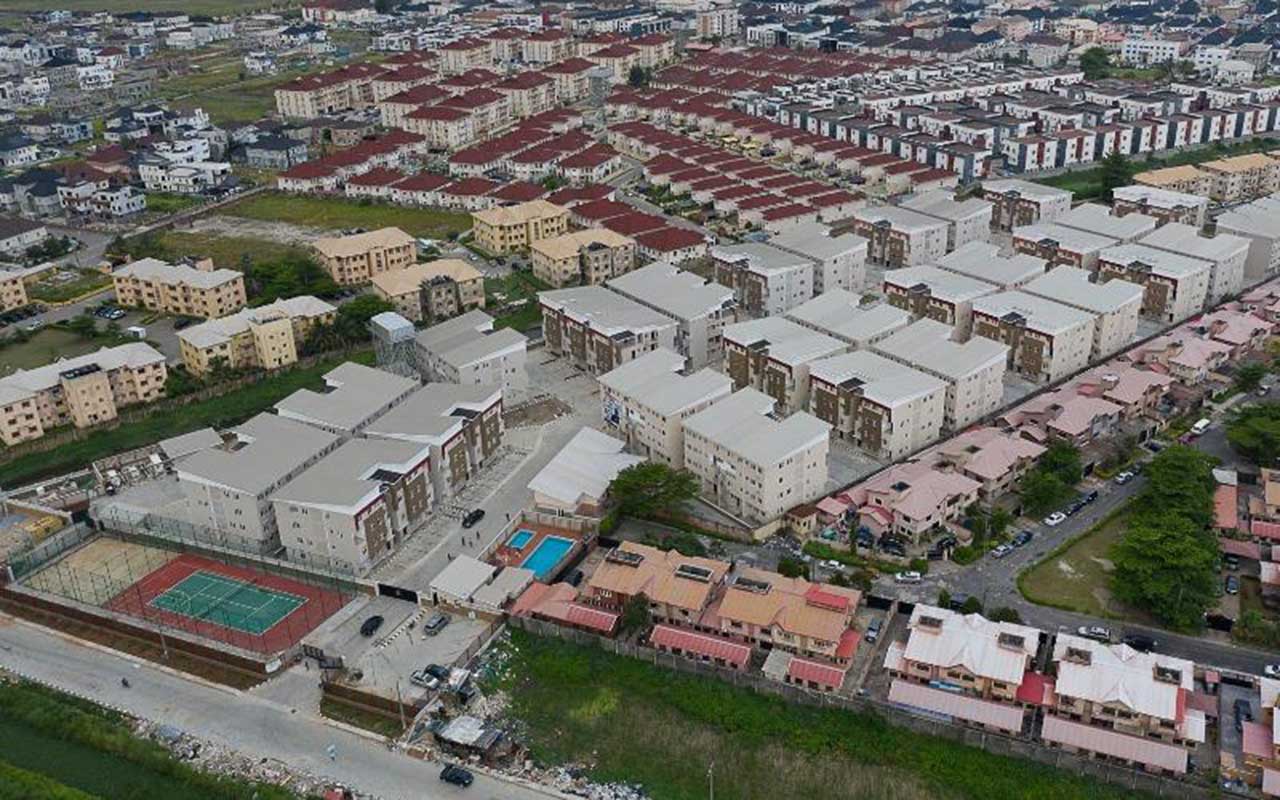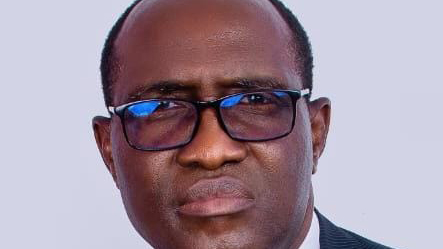On or off-campus accommodation is fast becoming students’ worst nightmare in higher institutions. The modern malaise, especially in cities, is not far-flung from problems of the high cost of land, financing and bureaucratic disincentives for private investments in the housing sector, VICTOR GBONEGUN reports.
As Nigeria’s tertiary education population continues to swell, a deepening crisis is unfolding in student accommodation in universities nationwide.
From federal to state institutions, the number of available on-campus hostels is falling far short of demand, forcing thousands of undergraduates into overcrowded and poorly regulated off-campus lodgings.
With rising insecurity, high rent costs, and inadequate infrastructure compounding the situation, stakeholders are warning that the student housing deficit estimated in hundreds of thousands could jeopardise academic performance, student welfare, and the overall quality of tertiary education if not urgently addressed.
According to the National Universities Commission (NUC), Nigeria has 226 universities (as of 2024), including 62 federal, 63 state, and 101 private institutions. Federal universities alone account for over 1.5 million undergraduates. Yet only a fraction of these students have access to on-campus accommodation.
At the University of Lagos (UNILAG), for instance, fewer than 9,000 hostel spaces are available for a student population of about 60,000. Similarly, at the University of Nigeria, Nsukka (UNN), fewer than 12,000 students can be accommodated on campus, out of an estimated 45,000 total enrolment. Besides, many of these facilities are in a state of disrepair, and applications for bed spaces often exceed availability by over 400 per cent.
In places like Ife, Nsukka, Benin, and Zaria, students often squeeze into poorly ventilated and overcrowded rooms in makeshift apartments, with four–six students sharing small spaces originally designed for two. Water and sanitation remain major challenges, while the cost of housing near campuses continues to soar due to demand.
More worrisome is the safety risk posed by off-campus accommodations. In recent years, reports of students falling victim to robberies, sexual assaults, and kidnappings have increased, especially in university towns with poor policing and surveillance. While the Tertiary Education Trust Fund (TETFund) has provided some support for physical infrastructure, including hostels, experts argued that it is not enough to address the scale of need.
In recent years, a few private developers have attempted to fill the gap by building premium student housing complexes, especially in major cities like Lagos, Abuja, and Ibadan. These facilities often boast modern amenities, such as Wi-Fi, 24-hour electricity, security, and recreation spaces, but at a steep cost.
A bed space in some of these premium hostels can range between N300,000 and N1 million per session, well beyond the reach of average students. Across most of the institutions’ locations, a single room goes for between N100,000 and N150,000.
However, the cost of a self-contained hostel varies across the institutions’ locations. For instance, within the Auchi Polytechnic, Edo state, the range is from N260,000 to N350,000 per year.
The Guardian gathered that a self-contained apartment in the University of Ilorin campus area ranges from N180,000 to N350,000 per year, depending on location and essential amenities provided, and with potential for additional costs like agent and agreement fees put at about N100,000 and maintenance fees of N50,000.
At Obafemi Awolowo University (OAU) campus, Ile-Ife, the price of a self-contained room ranges between N200,000 and N800,000 per year. At the University of Port Harcourt (UNIPORT) campus areas, a general price range for a self-contained apartment is between N250,000 and N700,000 per year, depending on the facilities in the building.
Near the University of Lagos (UNILAG) in Yaba, Lagos, a self-contained house can range from N500,000 to N1,700,000 per year. This is also based on the location, size, and features of the apartment. The specially furnished self-contained apartments may be slightly more costly, with an average price of around N800,000.
The situation is not far-fetched in Bayero University, Kano; a self-contained apartment near the university costs between N300,000 and N800,000 per year, depending on facilities and conditions of the building.
In Enugu, self-contained apartments near the University of Nigeria, Nsukka (UNN) campus area range from N145,000 to N350, 000 while the same unit of a self-contained apartment near the University of Abuja campus typically ranges from N400,000 to above 800,000 per year.
Further findings showed that in Bamidele Olumilua University of Education, Science & Technology, Ikere-Ekiti (BOUESTI), a self-contained apartment that is not situated within a compound is as high as N250,000 to N350,000, and in most cases, the agents will request prospective tenants to pay an amount of two years’ rent.
Stakeholders are now calling for a comprehensive national student housing policy that mandates minimum hostel provision standards, encourages incentives for affordable student housing projects, and promotes partnerships between universities, developers, and financial institutions.
The National Assembly, in 2023, initiated discussions on a proposed Students Accommodation Support Fund, but the bill has yet to pass into law. Experts advocate that the Federal Government fast-track this initiative and make student housing a national priority.
Stakeholders called for a comprehensive national student housing policy. Such a policy, they argue, should mandate minimum hostel provision standards, encourage incentives for affordable student housing projects, and promote partnerships between universities, developers, and financial institutions.
Speaking recently on the challenge of developing hostels, the Vice-Chancellor, University of Lagos (UNILAG), Prof. Folasade Ogunsola, revealed that constructing new hostel blocks runs into hundreds of millions of naira. She disclosed that even past attempts through Public Private Partnerships (PPPs) have largely failed.
Disturbed by the deficit, some alumni associations have had to step in to alleviate the suffering of the students. Notable among such associations is that of the Adekunle Ajasin University, Akungba-Akoko Alumni Association, that of the University of Ibadan’s College of Medicine, where alumni are involved in the construction of a 664-bed hostel, and the MAPOLY Alumni Association, which is investing in a hostel project, among others.
Expounding on the opportunities and challenges within Nigeria’s student housing sector, the Managing Director of UPDC PLC, Mr Odunayo Ojo, noted that purpose-built student accommodation is a dynamic and growing global market. He pointed out that, in Nigeria, the viability of such investments is largely driven by the specific characteristics and attractiveness of individual universities.
“Not every university presents the same level of opportunity,” Ojo told The Guardian. “Factors such as student population size, accessibility, and the ability of the institution to attract high-calibre students all influence investor interest.”
He explained that while some institutions have succeeded in attracting private investment into student housing, others struggle, primarily due to the economic and infrastructural realities of their surrounding environments. According to him, site-specific challenges such as terrain, inadequate utilities, and limited access to power and water can deter investment.
“In areas where infrastructure like electricity and water supply is already in place, the investment requirements are significantly lower,” Ojo said. “However, when investors have to provide these critical services themselves, it becomes more financially demanding.”
He advised that potential investors must assess the broader economic ecosystem of each institution, including enrolment levels, existing infrastructure, and the institution’s growth prospects.
“There is a strong market for student housing; students need a place to live,” he said. “If approached strategically, the sector can be very profitable.”
Ojo emphasised that the future of student accommodation in Nigeria lies with the private sector, much like the broader liberalisation of the education sector. He encouraged private players to actively engage with both government and universities to identify areas where they can contribute.
“There is a role for Public-Private Partnerships,” he added. “The government can create an enabling environment by providing access to land, regulatory support, and infrastructure. Once that framework is in place, private capital will naturally follow where the opportunities exist.”
An estate surveyor and valuer, Dotun Bamigbola, reaffirmed that from the outset, most public tertiary schools don’t have adequate capacity to construct student housing, noting that this remains a major challenge, creating that gap in student housing supply
Bamigbola said the gap is an opportunity for investors to fill in the gap since the number of students doesn’t stop growing. According to him, with Nigeria’s population growth, the schools lack the capacity to cater for the fresh students, especially the major institutions that young Nigerians prefer to attend.
On the way forward, he said: “Public-owned institutions are under the control of the government, either state or federal. There is bureaucracy during efforts to develop and donate residential halls for students. The solution lies in the privatisation of residential halls. A private developer could have a partnership with the school, develop the project within the school or government land for ease of access. It is a solution that can be explored.
“The students can pay handsomely to an extent. In the expanse of land that the schools have, they can create opportunities to accommodate students’ residential hostels. “
“It can be a Joint Venture Agreement (JVA) or a Build-Operate-Transfer (BOT) agreement. Initially, students may pay high prices for a period, but when they get their money, they can return to the school, and the school can charge at a subsidised rate to reduce the high cost of students’ housing. The government can also intervene by bringing input into the hostel construction cost so that it can be subsidised for returns.”
Bamigbola, a past chairman of the Nigerian Institution of Estate Surveyors and Valuers, Lagos branch, argued that at the moment, many developers only consider the environment proximal to schools based on the value that there is a need, construct and charge at their own rate based on the cost of land, construction cost and for profit-driven.






